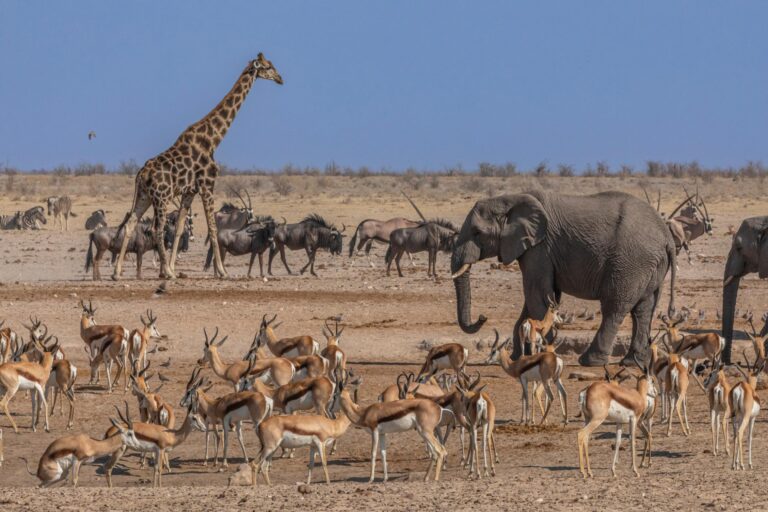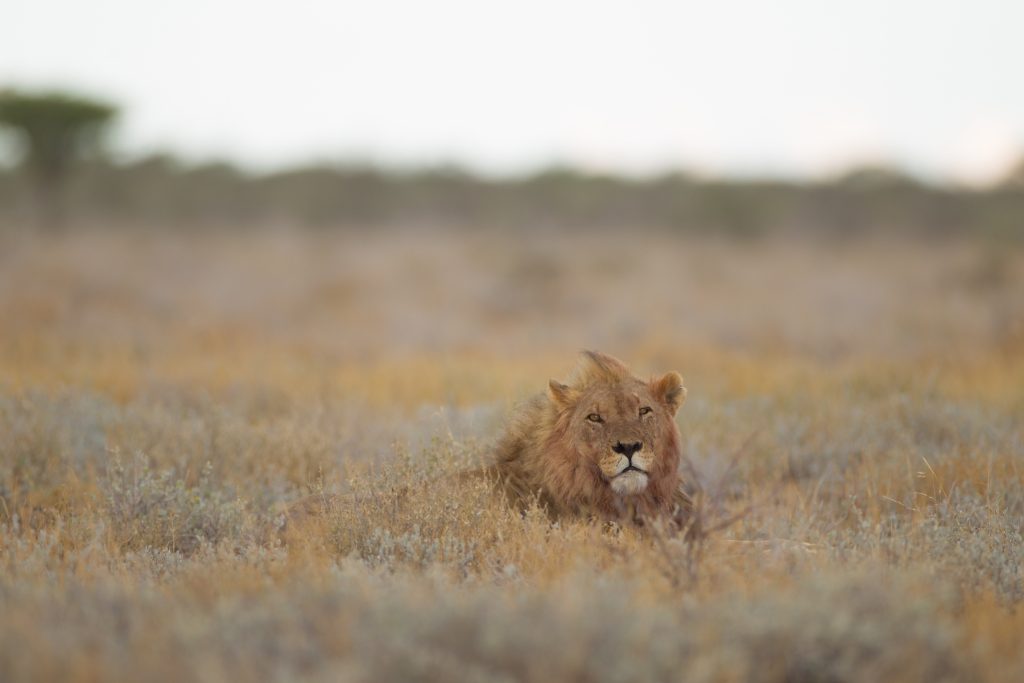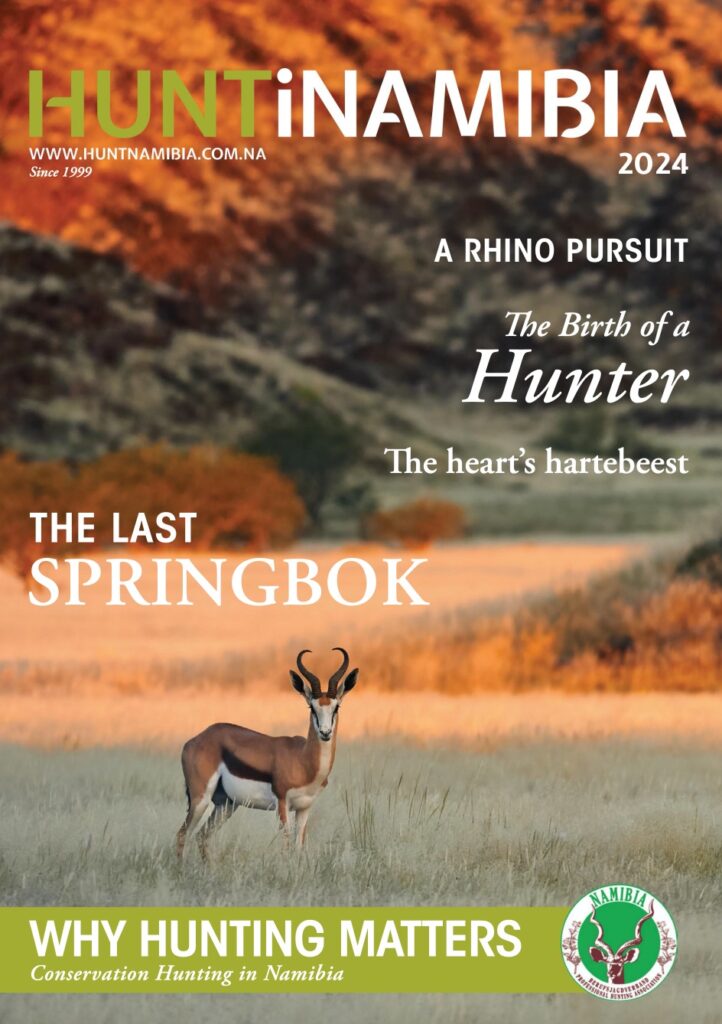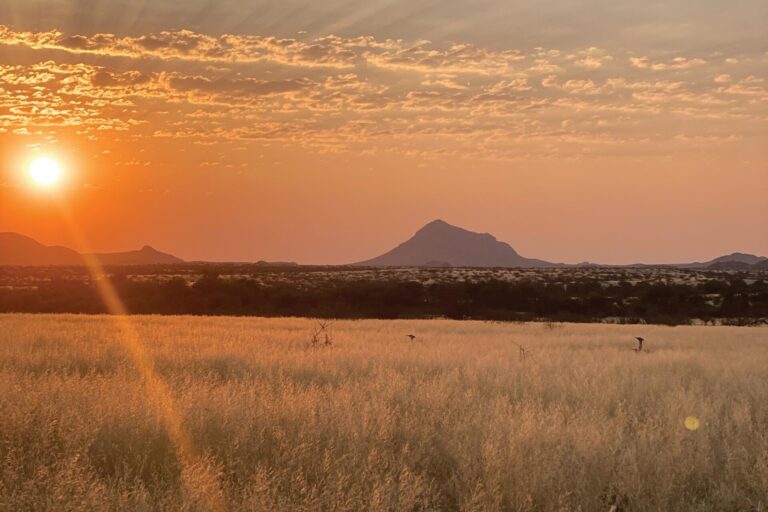The issue is ripe with fear in Africa because of the implications such a move would have for conservation on the continent. Currently eight out of the top 10 countries engaged in large mammal conservation use trophy hunting as an important component of their efforts.
It is because of trophy hunting that many governments, landowners and local communities today choose to keep land as wildlife habitat rather than converting it to agricultural land. It is also why they choose to invest in anti-poaching measures and why they tolerate dangerous wildlife on their doorstep. The removal of these three incentive pillars would likely topple conservation in many parts of Africa.
Let us take a closer look at how trophy hunting supports these incentives for nature conservation.
Wildlife habitat versus agricultural land
Africa’s picturesque landscapes provide critical habitat and ecosystem services to wildlife and people. The main threat to wildlife globally is converting land for agricultural use or for urban or industrial development. Revenue from trophy hunting provides incentives for landowners to maintain land as wildlife habitat.
Land on which hunting takes place is the habitat not only of the hunted species, but also for countless animals and plants not subject to hunting.
In Africa there is more land on which trophy hunting is used as a conservation tool than is covered by national parks. In addition, there are currently no feasible alternative wildlife-based land uses for most trophy hunting areas. Photo tourism is only viable in select ‘scenic’ areas, where good transport and infrastructure allow for a high volume of visitors. Another frequently suggested alternative is that local communities should apply for aid grants – but this undermines communities’ rights to be self-governing and independent. It puts them at the mercy of charity and handouts.
Anti-poaching measures
Poaching or other wildlife crime is often used in the same breath as trophy hunting. This is totally wrong. Trophy hunting is legal, whereas poaching is the illegal stealing of resources. Trophy hunting is also known to help in the fight against wildlife crime. This happens for several reasons: on the one hand hunters in the field act as a deterrent to poachers, and on the other hand the value that wildlife brings to communities through trophy hunting encourages them to rather protect this natural resource.
Co-existing with dangerous animals
Rural communities that live with wildlife do so in dangerous conditions, often in makeshift homes with little protection against the animals roaming outside. What stops a community from picking up arms in the face of danger? They choose to protect rather than kill if the animal posing the danger is of more worth to them alive than dead.
For example, in one area in southern Tanzania, human-wildlife conflict killing involving snaring and poisoning resulted in the deaths of over 50 times more lions than would have been permitted in a trophy hunting area.
By contrast it has been seen in areas that permit trophy hunting that generated income for the community increases their willingness to tolerate dangerous and destructive animals.
The emotive world of false information
As is often the case when talking about trophy hunting, the conversation is driven by misinformation from animal rights activists, backed up by celebrities and social media. In Britain the parliamentary debate surrounding the Hunting Trophies (Import Prohibition) Bill showed over 70% of arguments to be false or misleading, and ignoring conservation expertise.
Ironically, Britain is one of the countries worldwide that are most depleted of nature, while the countries being discussed in parliament for banning trophy imports are among the most successful in terms of conservation. For example, Namibia, Botswana and Tanzania (all of which use trophy hunting) are the top three countries of the world for large mammal conservation, while Britain ranks 123rd.
In Africa, trophy hunting is not an imminent threat to any species. This is reflected by the Red List of Threatened Species maintained by the International Union for the Conservation of Nature (IUCN), which is the globally recognised authority on the conservation status of the world’s wild species.
An exaggerated focus on trophy hunting simply draws attention away from the real threats to conservation which includes human-wildlife conflict, poaching or the disempowerment of local people in conservation.
For multiple hunted species, even threatened ones, trophy hunting has proven conservation benefits by reducing far greater threats such as habitat loss and poaching.
The CEO of the Namibian Chamber of Environment, Dr. Chris Brown, notes: “Many countries, particularly former colonies, are becoming increasingly sensitive to attempts by Western industrialised countries to dictate how they use and manage their natural resources, especially when wildlife numbers are stable and increasing. Such paternalistic, arrogant and misinformed approaches will only encourage our countries to look eastwards to grow alliances and markets for our natural resources.”
As part of holistic and successful conservation programs, trophy hunting enables African countries to continue to practice conservation at landscape level, while at the same time improving the lives and livelihoods of rural and indigenous peoples in a way that reduces dependence on public aid and philanthropy. When done collaboratively and transparently, trophy hunting has proven to be a positive contributor to conservation. This is why people who have the conservation of wildlife and wild spaces truly at heart, support trophy hunting even if it goes against their personal activity preferences. They understand that trophy hunting benefits conservation and that without it conservation efforts will be greatly hampered. Which begs the question, what is the real motive for banning trophy hunting imports.





